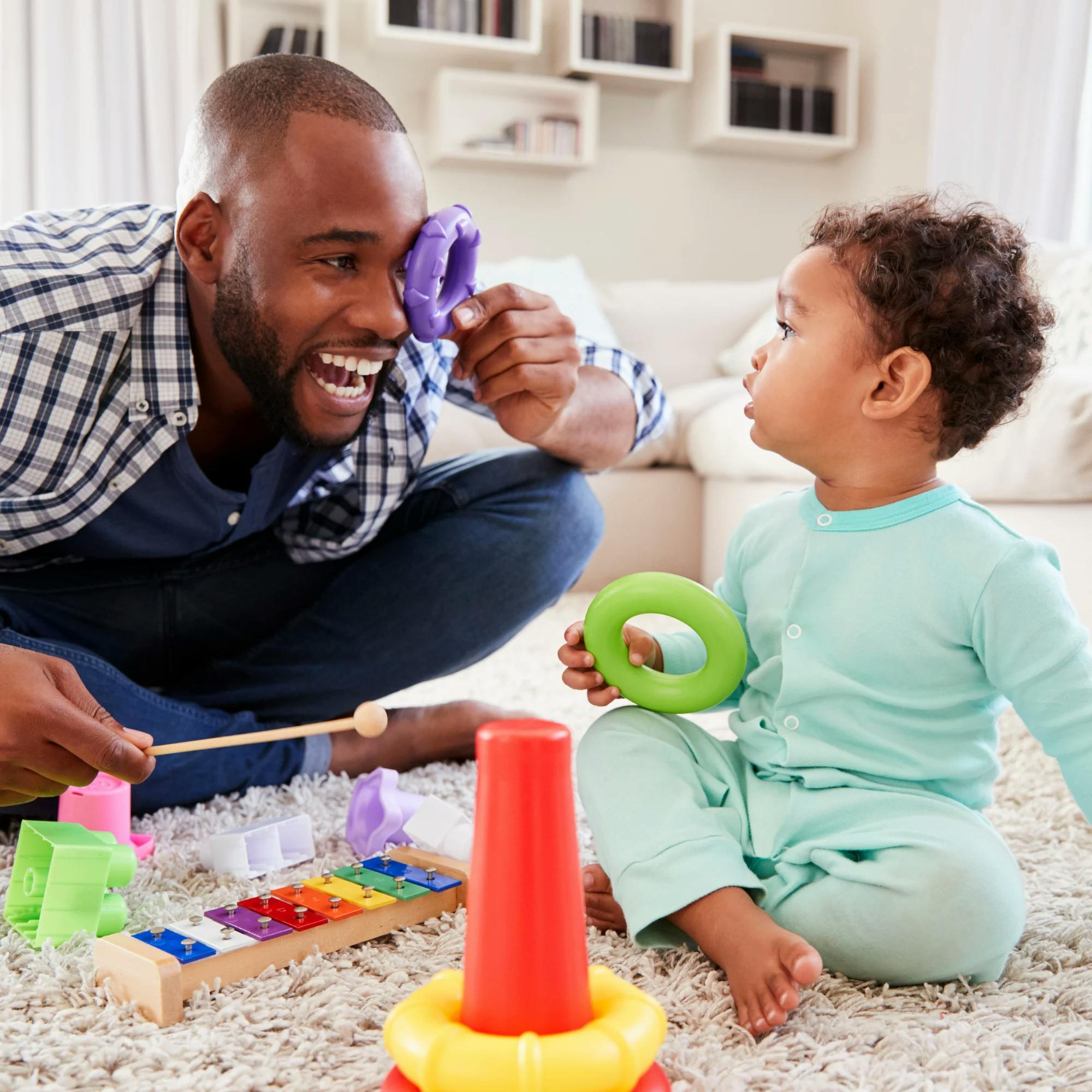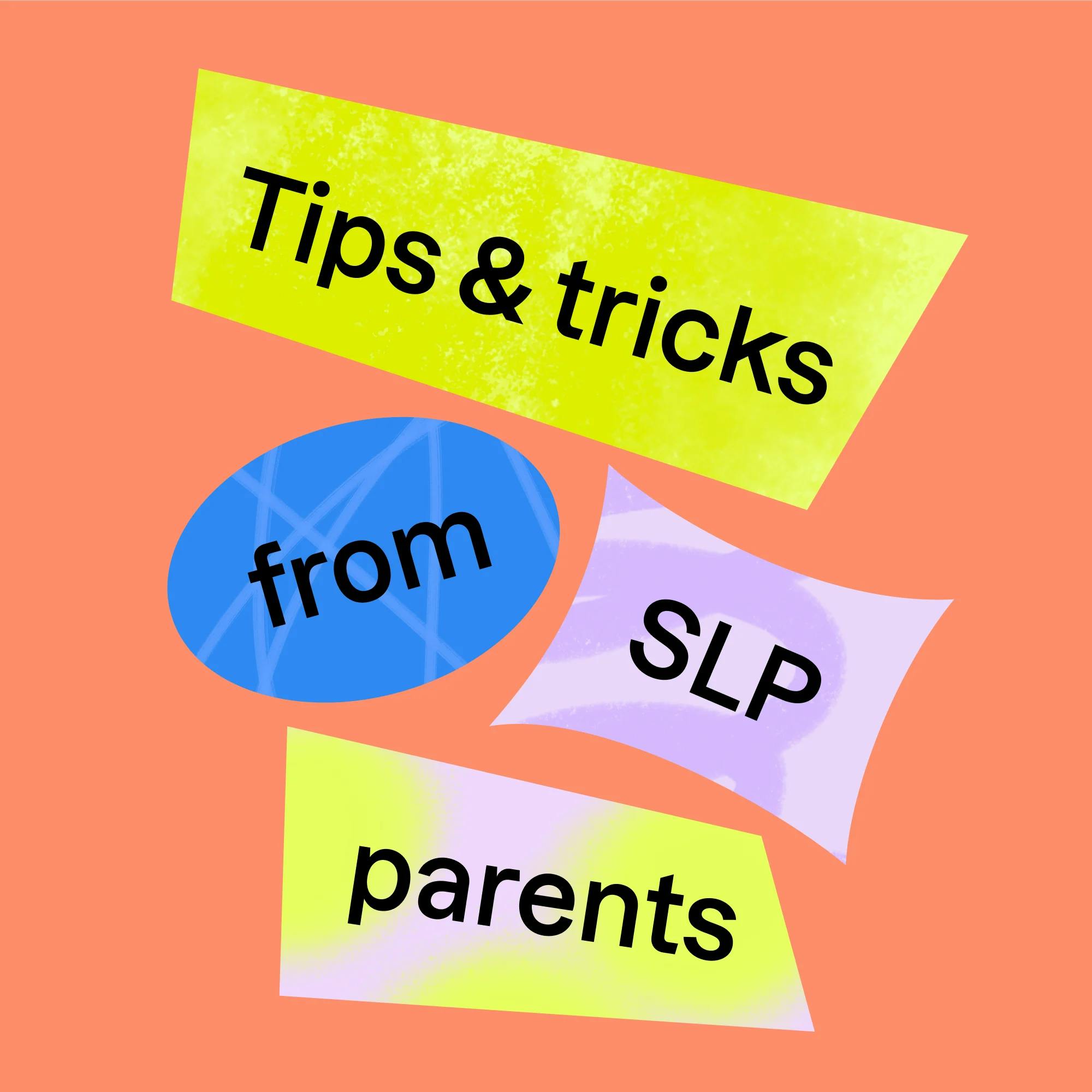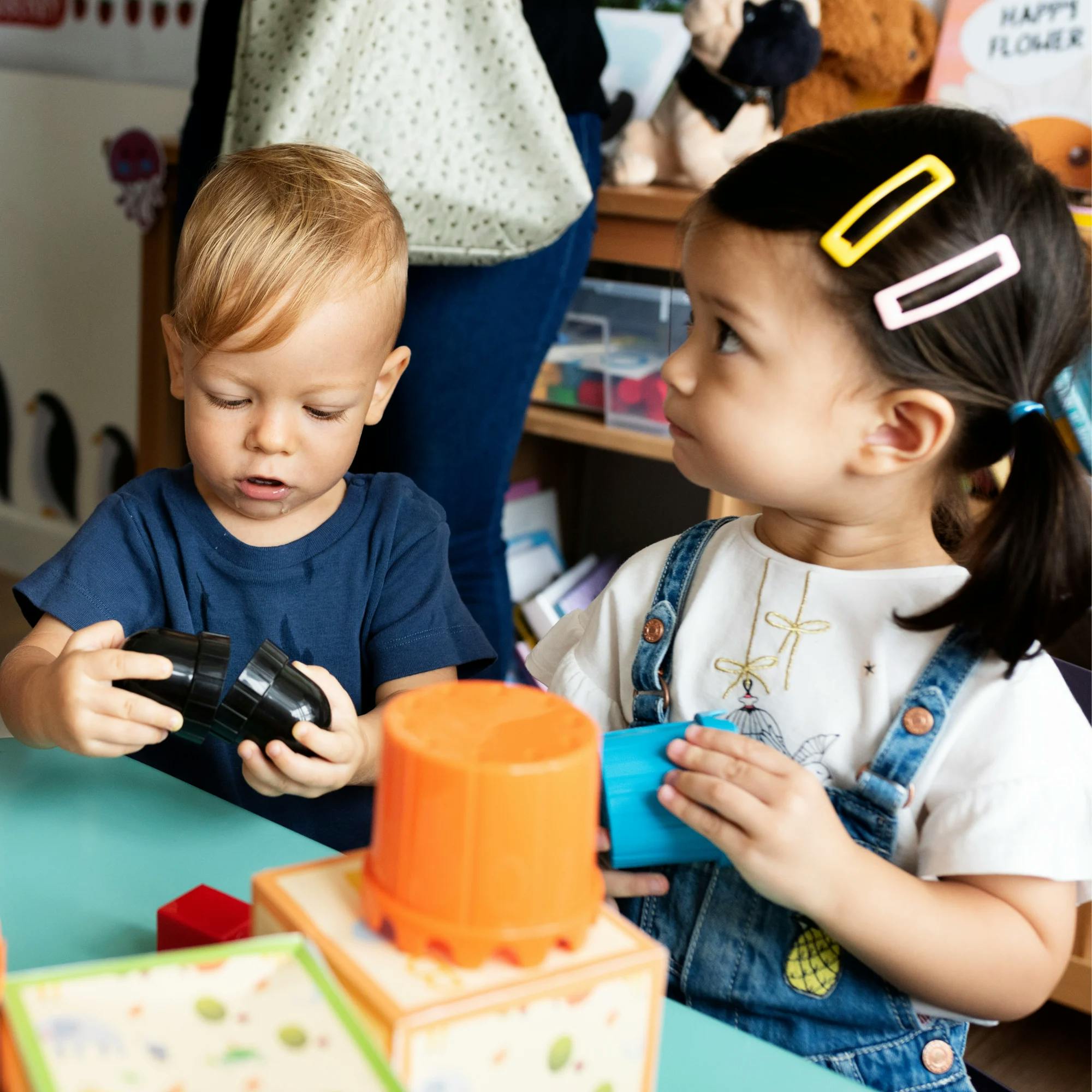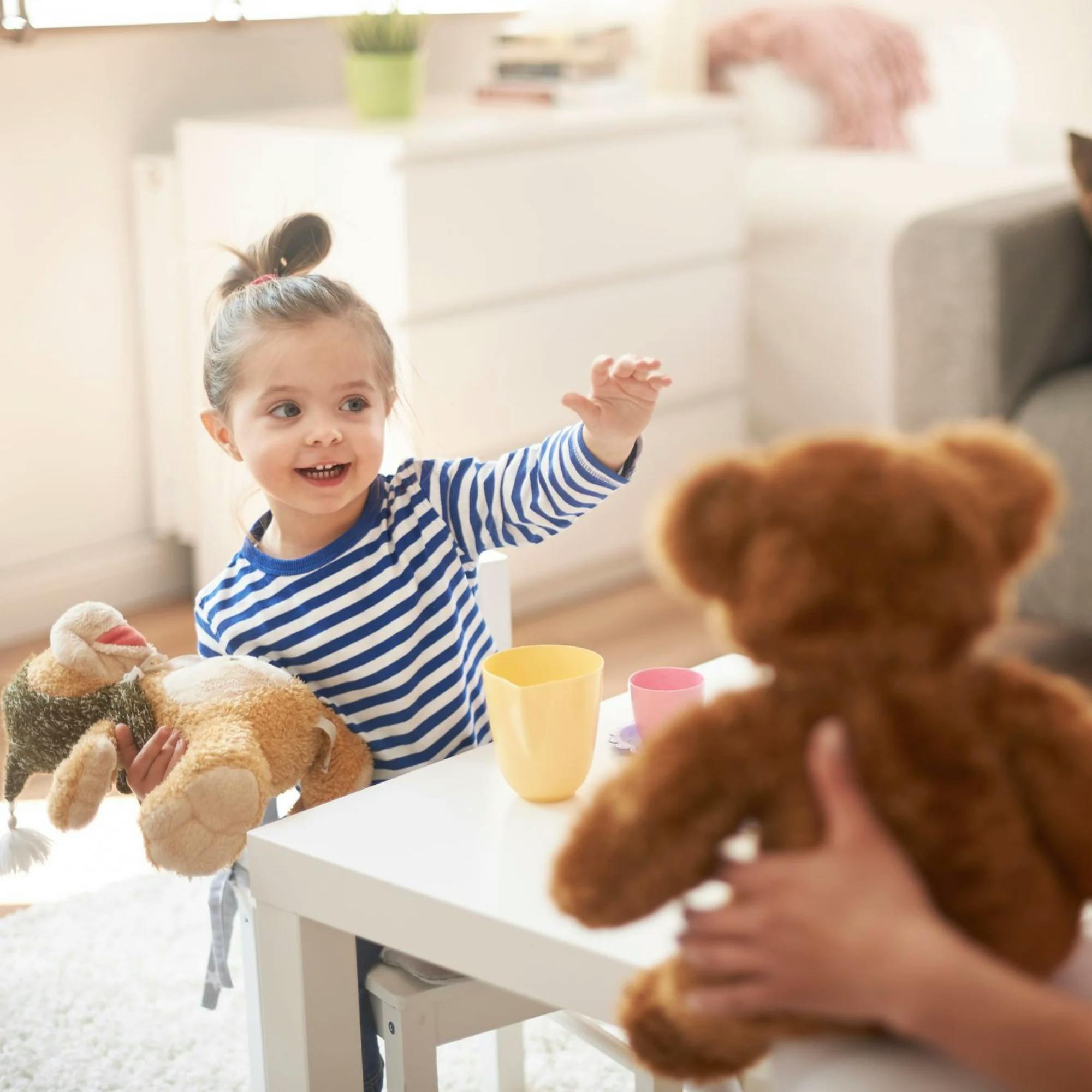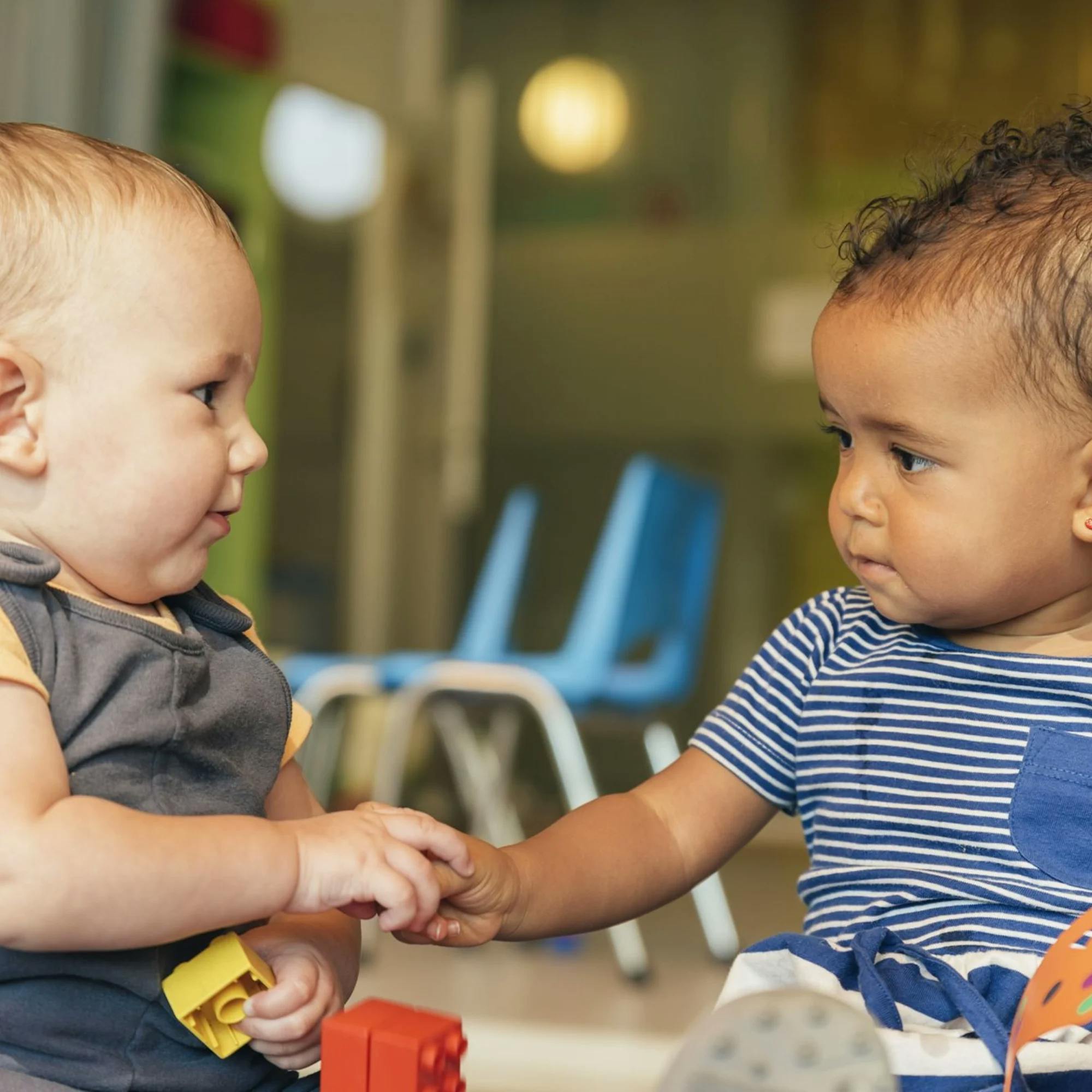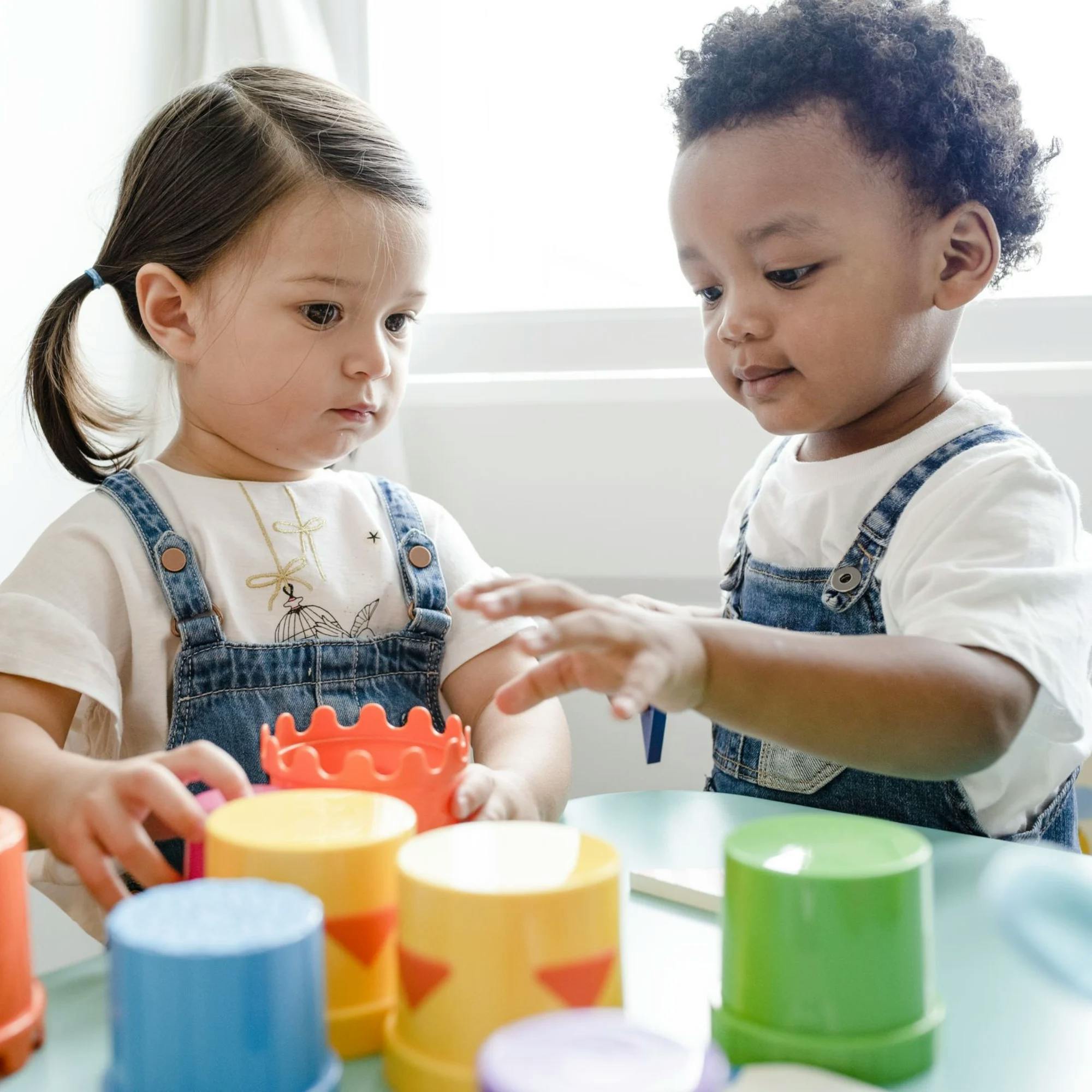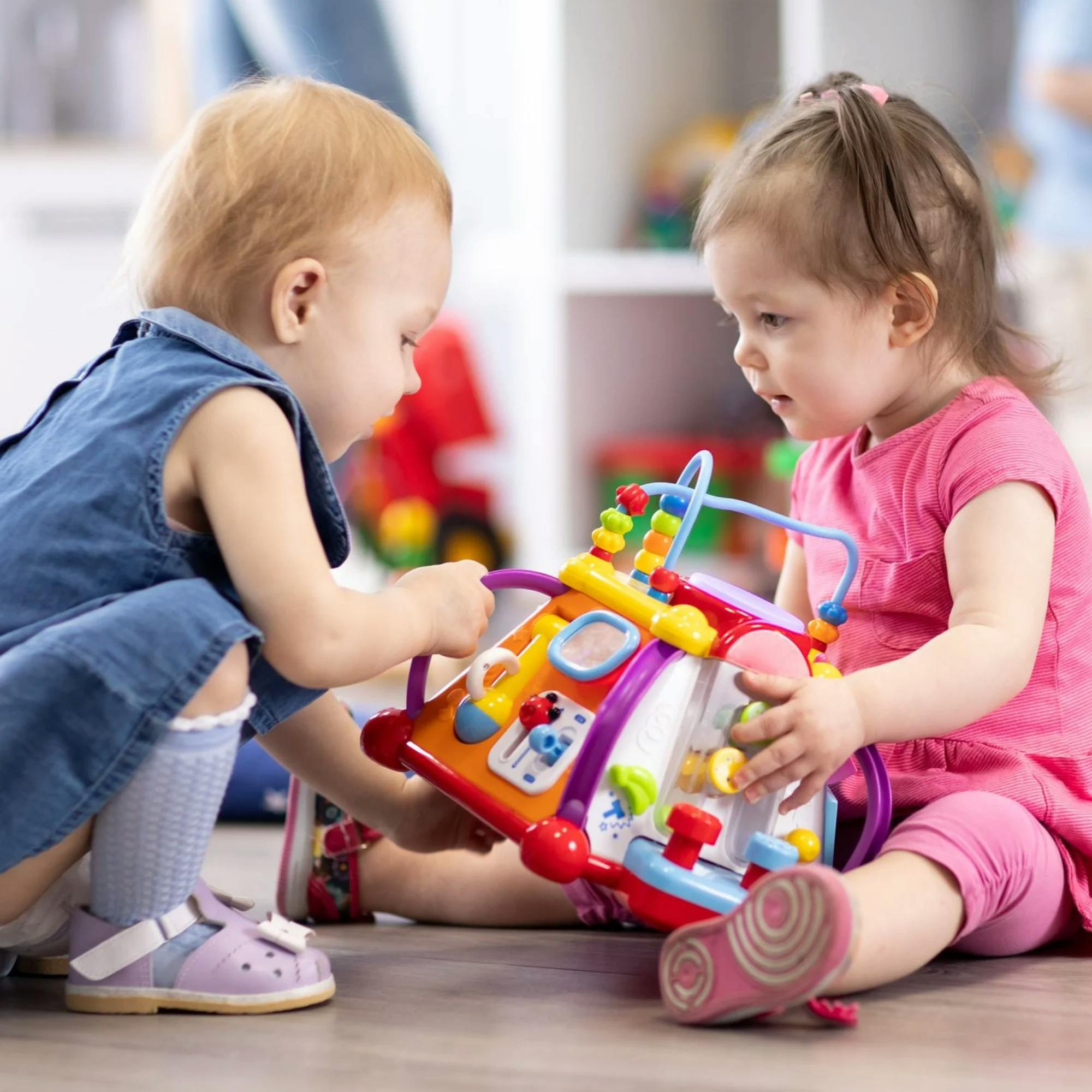Ah, the joys of teaching your child manners! Getting your toddler to use those polite “magic words” can be tricky. Read on for some expert tips from speech therapists to help you teach your child to say “please” and “thank you.”
Model the words you want your child to say
When it comes to helping your child say any new words, modeling is key. Modeling is when you use words in order to show your child what they mean and how to use them. Over time, your child will pick up on what you’re demonstrating and begin repeating after you.
You can do modeling throughout the day in normal conversation. You can model things like, “Can you please pick up your toys?” or “Thank you for sharing so nicely!”
When you model often, it allows your child to learn the words, the context they’re used in, and how to say the words themselves.
You can also model in structured contexts, in which you ask your child to repeat after you. For example, if they’re trying to ask for a toy, you can model, “Doll, please!” and encourage your child to repeat the phrase after you.
When you model often, it allows your child to learn the words, the context they’re used in, and eventually how to say the words themselves. The same way you teach words like “Mama” or “milk,” you can focus on words like “please” and “thank you.” These words will eventually become part of the expected vocabulary the more your child hears them.
However, some kids may need more support in order to learn these words. Here’s what to consider and how to help them.

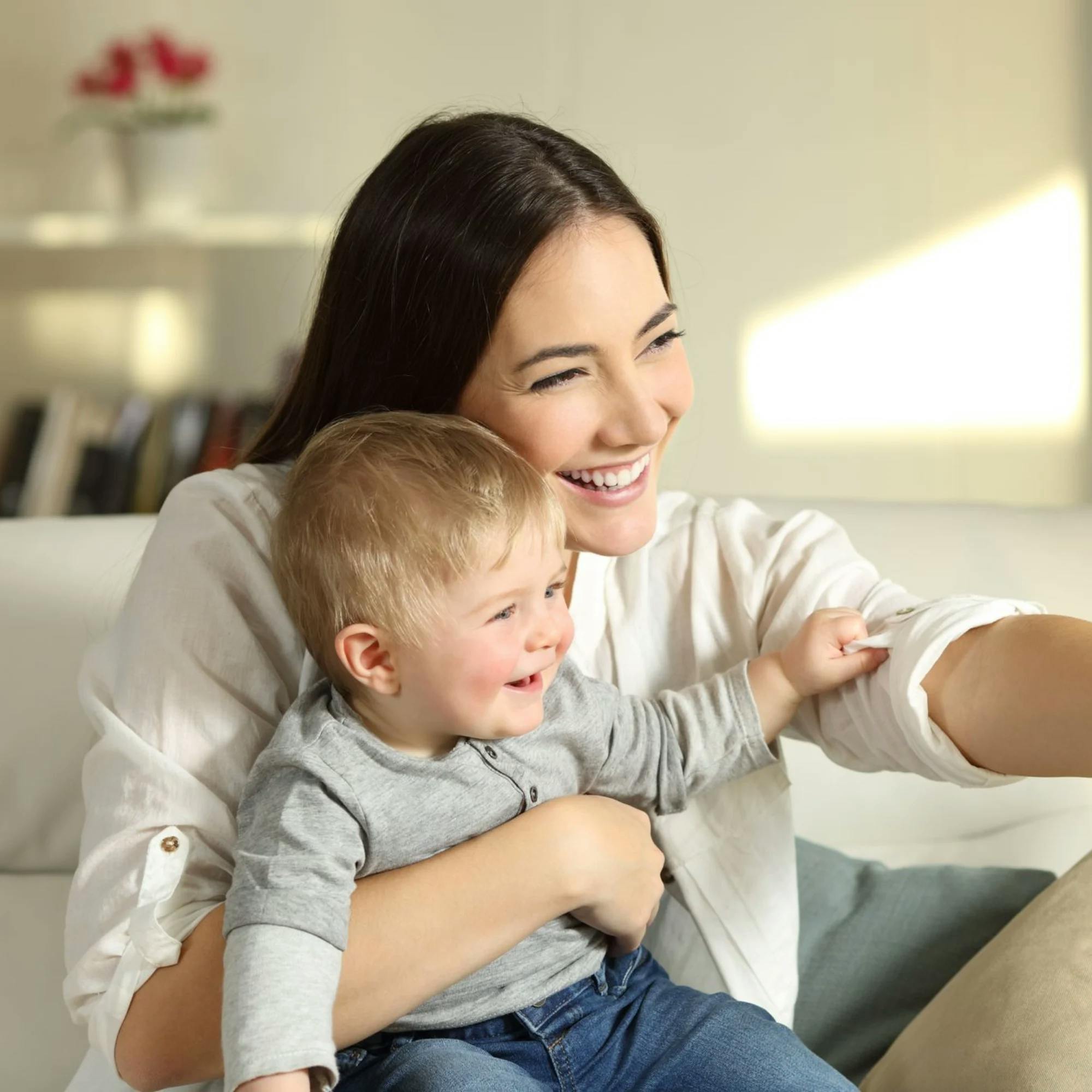
When should you teach your child to say “please” and “thank you”?
Before you begin working on these words, it’s important to think about how your child is currently communicating. Are they using sentences, phrases, or single words? Are they gesturing or pointing to communicate? Or are they simply crying when they need something?
If your toddler is not gesturing or talking yet, it probably isn’t time to focus on words related to manners. When children are first learning to talk, we want them to learn words that teach them the cause and effect of communication. If they ask, “Milk?,” someone gives them milk. If they point to the ball they can’t reach, someone gets it down for them.
When children are first learning to talk, we want them to learn words that teach them the cause and effect of communication.
First words are generally ones that allow the child to feel that sense of reward from communicating. These words are called functional words.
Of course, you could teach your child to say the word “please” to request something. However, the focus would be more on the purpose of the word–to have a need met–rather than being polite or showing good manners.
So at what age should a child say “please” and “thank you”? If your child is talking and using some words and phrases, you can more realistically expect that they’re ready to use words related to manners. Again, you will want to model these words frequently when you talk with your toddler. After hearing these words often from you, your child may pick them up on their own! However, you may also need to prompt and encourage them.

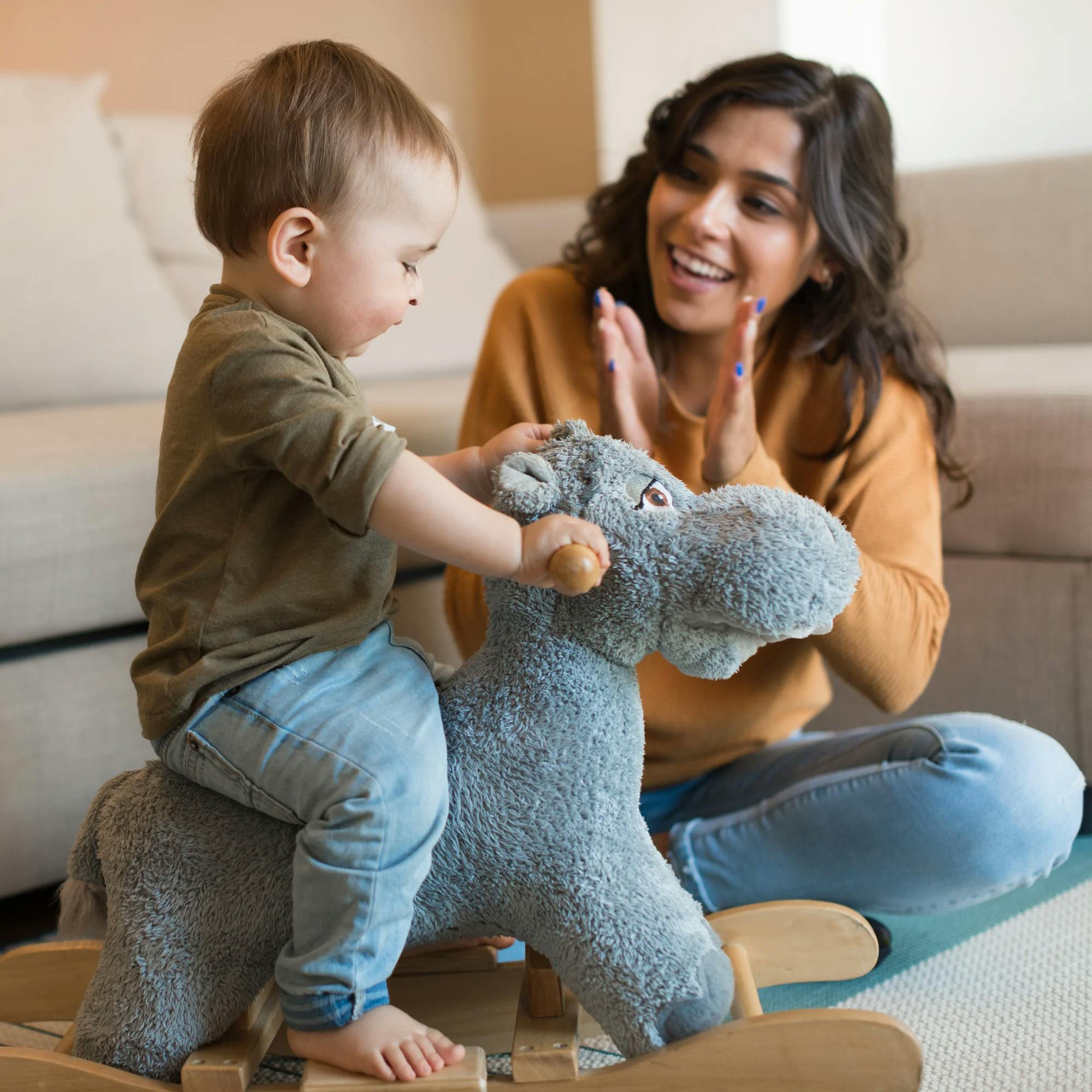
How do I encourage my child to say “please”?
If your child says something like, “I want my cup,” try this. You can tell them, “Thank you for telling me! Let’s say it like this: ‘I want my cup, please.’” Simply take whatever phrase or sentence they told you, then add “please” at the end. See if your child will imitate you.
How do I encourage my child to ask politely?
Another way to target manners is by helping your child learn to phrase questions politely. Instead of “I want” phrases, have your child imitate questions: “May I have my cup?” or “May I have my cup, please?”
How do I encourage my child to say “thank you”?
Make a point to praise and tell your child “thank you” every day. This could be during simple, everyday tasks you may not usually thank them for. Find what’s important to your child in their daily life, and thank them when you participate in the activity together. It could be something like, “Thank you for playing with me!” or “Thank you for sharing your book with me!” Your child will recognize you are enjoying the task together, and they’ll also get to hear this important phrase.
When your child hands you something or helps with a chore, tell them, “Thank you!” You can even give them a hug, high five, or big smile. Your child will associate positive feelings with these words, which will also prompt them to start using them.
Your child will associate positive feelings with the words "thank you," which will prompt them to start using them.
If your child is not using “thank you” on their own, you can also talk about it. You could say, “I just helped you pick up your toys. What is something kind you could say about that?” If they need some help, you can then explain that “thank you” would be a nice thing to say and that it makes people feel good to hear it.
Chances are, the more often you tell your child “thank you,” the more they will start to say it themselves.

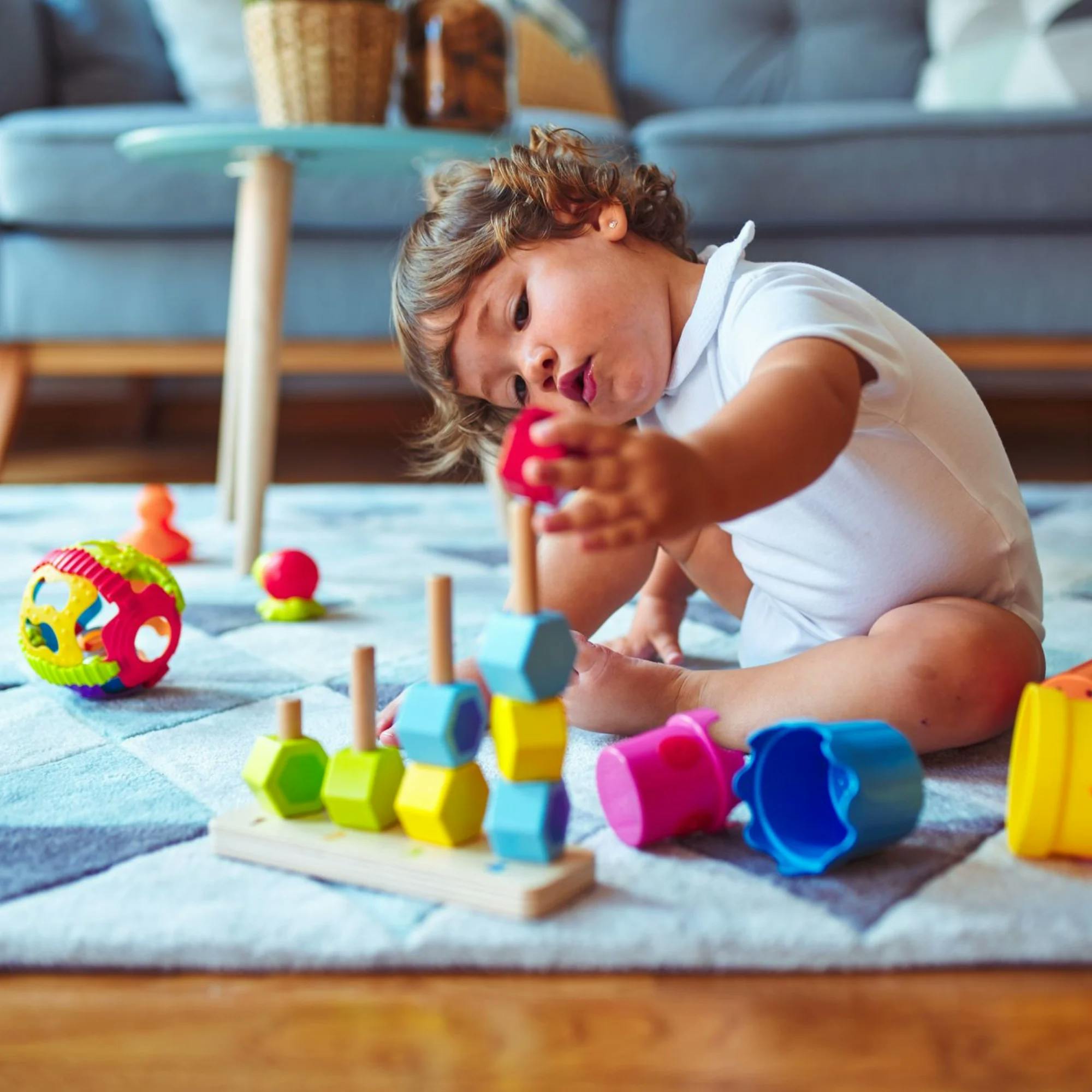
Looks for examples in books and shows
Here’s another tip. A fun way to teach manners is by discussing how they’re used in books, TV shows, or videos with characters your child loves. Each time you read a book or watch a show and “please” or “thank you” is used, point it out! You could say, “That was so nice of them to say, ‘Thank you!’”
You can even make it a game and count how many times you hear one of these kind words! When your child recognizes that some of their favorite characters use these words, they will want to, as well.

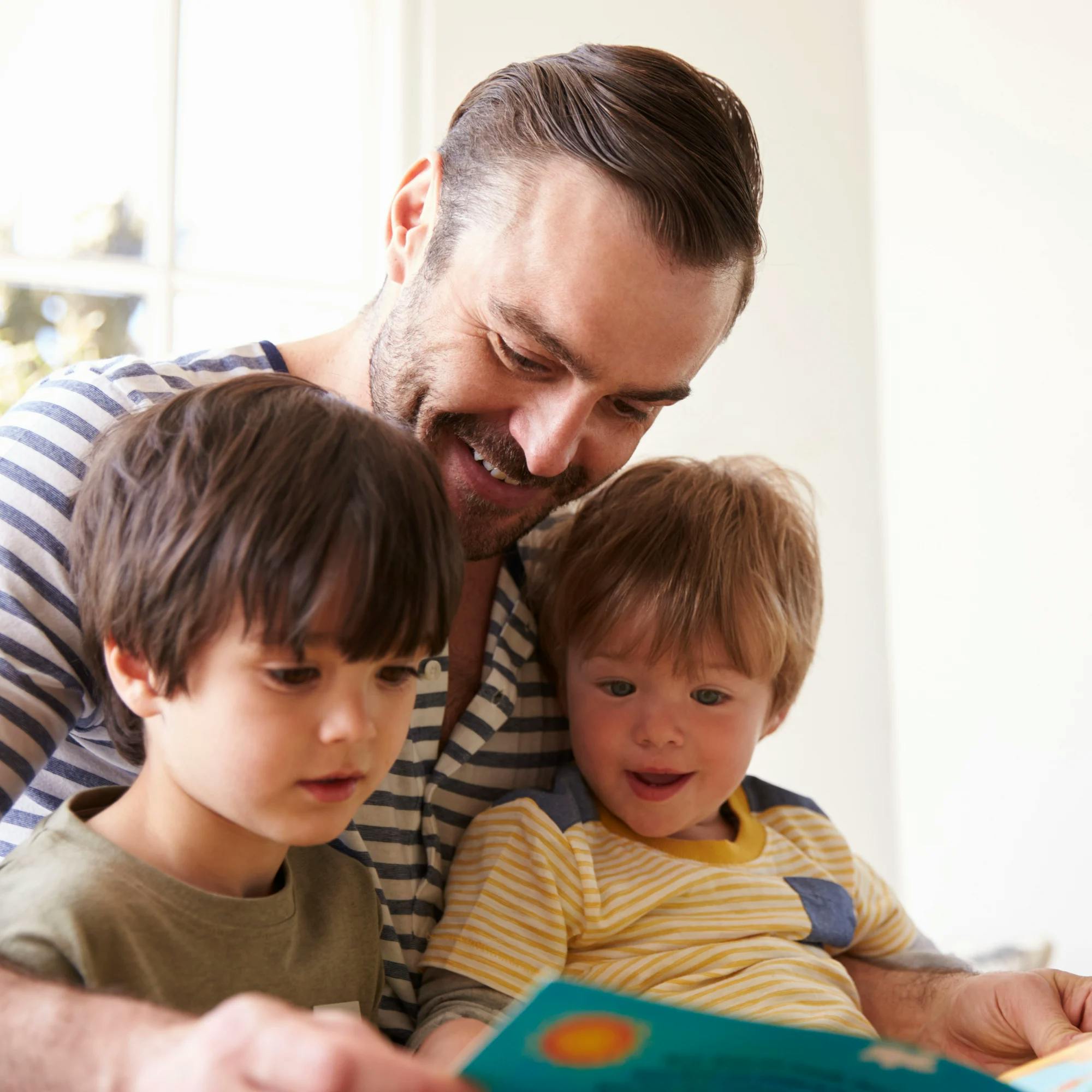
Keep practicing, but don’t get too caught up in it
Good manners are important. Children learn early social skills at home, and that includes knowing when to say “please” and “thank you.” But it’s also important to recognize when it’s OK to back off a bit on this expectation. For instance, if your child is in the middle of a meltdown (it happens!), it’s OK to let the task of saying these words go. When your child is upset, they likely aren’t in a good place to learn and absorb what you’re trying to teach them.
It may take a lot of time and practice for your child to learn these words. You may not see any progress at first. But one day your child will likely begin using these words and phrases, and it will all “click.” Your hard work will pay off!
Speech therapy can help with social skills
Using manners is just one part of social skill development. Did you know that speech therapy can help children who need support with social communication? While some children learn social skills independently, others may need some help. Problems with social skills typically go hand in hand with receptive and expressive language issues.
If your child struggles with following directions, understanding questions, expressing their thoughts, or communicating and playing with others, it’s a good idea to talk with a speech therapist. Speech therapists can help kids learn to communicate effectively, understand other’s points of view, and even recognize and name emotions that they (or others) may be feeling. Click here to get matched with a speech therapist who's right for your family.
How Expressable Can Help
Concerned your child isn't reaching age-expected milestones? Looking for communication support from a professional? Expressable is a national online speech therapy practice serving children and adults. We treat all major areas of communication and feeding, offer flexible hours including evenings and weekends, and accept most major health insurance plans. We’re proud to have earned more than 3,000 5-star reviews from our clients (4.9/5 average).
Our therapy model is centered on parent and caregiver involvement. Research proves that empowering caregivers to participate in their loved one’s therapy leads to better outcomes. That’s why we combine live, 1-on-1 speech therapy with personalized education and home practice activities for faster progress.
Communication is more than words. It’s how we share how we feel and show who we are. We’re here to help you or your child do just that.
 Abby Barnes, M.S., CCC-SLP
Abby Barnes, M.S., CCC-SLP
